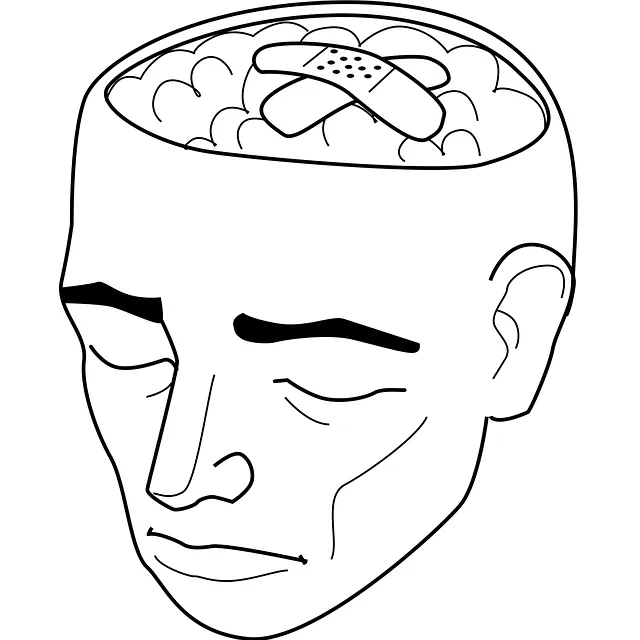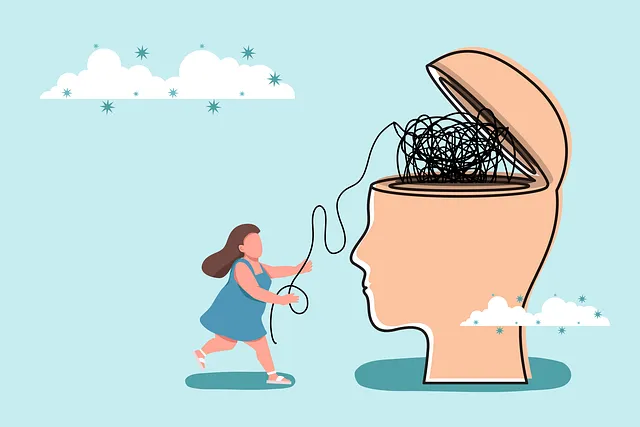Kaiser Permanente Mental Health Arvada prioritizes cultural competency through holistic training and initiatives, ensuring sensitive, inclusive care tailored to diverse patient needs. Their comprehensive programs, including Social Skills Training and Stress Reduction Methods, bridge communication gaps, enhance trust, and improve treatment adherence. By focusing on burnout prevention, conflict resolution, and mental health support, they revolutionize healthcare delivery, setting a transformative example for the industry with positive outcomes for both patients and staff.
Cultural competency training is transforming healthcare delivery, especially in diverse communities. This comprehensive guide explores best practices through the lens of Kaiser Permanente’s approach, focusing on mental health as a key area of impact. We delve into case studies from Arvada’s healthcare providers, highlighting successful strategies. Overcoming barriers to continuous learning and adaptation is crucial for building inclusive systems, ensuring equitable care for all. Join us in this journey towards enhancing patient experiences, especially in the context of Kaiser Permanente’s innovative mental health initiatives and Arvada’s inspiring examples.
- Understanding Cultural Competency in Healthcare: A Kaiser Permanente Perspective
- The Impact of Mental Health Training on Patient Care
- Case Studies: Best Practices from Arvada's Healthcare Providers
- Overcoming Barriers: Strategies for Continuous Learning and Adaptation
- Building Inclusive Systems: A Roadmap for Future Initiatives
Understanding Cultural Competency in Healthcare: A Kaiser Permanente Perspective

Cultural competency is a cornerstone of modern healthcare, especially within organizations like Kaiser Permanente that prioritize patient care and well-being. At Kaiser Permanente mental health Arvada, we recognize that understanding and respecting diverse cultural backgrounds are essential to delivering effective services. This involves not just treating symptoms but addressing the holistic needs of each individual, including their unique cultural perspectives and practices.
Our approach leverages the power of positive thinking and emotional well-being promotion techniques to foster an environment where inner strength development is encouraged. By integrating these concepts, we aim to bridge cultural gaps, enhance communication, and improve outcomes for all patients. This commitment ensures that our care remains sensitive, inclusive, and centered around the specific needs and beliefs of every patient we serve.
The Impact of Mental Health Training on Patient Care

At Kaiser Permanente Arvada, we recognize that mental health is a significant aspect of overall wellness, and integrating comprehensive training into our healthcare provider curriculum is paramount. This specialized education equips our professionals with the skills to address patient needs effectively, fostering improved care and positive outcomes.
The impact of such training extends far beyond individual interactions; it revolutionizes how we navigate complex patient scenarios, especially in cases involving depression prevention, mood management, and conflict resolution techniques. By integrating these strategies into patient care, we create a supportive environment that encourages open communication, enhances trust, and ultimately improves treatment adherence.
Case Studies: Best Practices from Arvada's Healthcare Providers

Arvada’s healthcare providers have been at the forefront of cultural competency training, showcasing best practices that other organizations can learn from. One notable example involves Kaiser Permanente and their mental health services. By integrating Burnout Prevention Strategies for Healthcare Providers, they’ve successfully reduced staff stress and improved patient outcomes. This approach emphasizes the importance of self-care and resilience among healthcare professionals.
Additionally, local providers have implemented Conflict Resolution Techniques and Stress Management Workshops Organization to foster a more harmonious work environment. These initiatives not only enhance employee satisfaction but also positively impact patient interactions. The success stories from Arvada’s healthcare sector highlight how comprehensive training programs can transform the overall healthcare experience, especially when focusing on mental health support and well-being strategies.
Overcoming Barriers: Strategies for Continuous Learning and Adaptation

Overcoming barriers to cultural competency is an ongoing process that requires dedicated efforts from healthcare providers. At Kaiser Permanente Mental Health Arvada, we recognize that continuous learning and adaptation are key to delivering equitable care to diverse patient populations. One effective strategy is implementing comprehensive training programs, such as Social Skills Training and Stress Reduction Methods, which equip professionals with the necessary tools to navigate complex cultural interactions sensitively and effectively.
Regular engagement in Mental Health Awareness initiatives fosters a culture of open dialogue and understanding. By organizing workshops, inviting guest speakers from diverse communities, and encouraging peer-to-peer learning, healthcare providers can enhance their cultural sensitivity and adaptability. These efforts not only bridge gaps in communication but also empower professionals to offer more personalized and compassionate care tailored to each patient’s unique background and needs.
Building Inclusive Systems: A Roadmap for Future Initiatives

In building inclusive systems, healthcare providers must look beyond individual training and consider organizational transformation. Kaiser Permanente Arvada has recognized the importance of this holistic approach to cultural competency. By implementing initiatives that foster a culture of inclusivity, the organization aims to create an environment where all patients feel valued and heard, regardless of their background or health status. This includes integrating Conflict Resolution Techniques and Stress Reduction Methods into daily operations, ensuring that staff are equipped to handle diverse patient needs effectively.
Furthermore, promoting mental health awareness and coping strategies such as Mood Management can significantly enhance the patient experience. Through these initiatives, Kaiser Permanente Arvada strives to revolutionize healthcare delivery by providing culturally sensitive care that addresses not just physical symptoms but also the emotional and psychological well-being of its diverse patient population.
Cultural competency training in healthcare, as exemplified by Kaiser Permanente’s approach and enhanced by case studies from Arvada’s providers, significantly improves patient care, particularly in mental health services. Overcoming barriers through continuous learning and adaptation is crucial for building inclusive systems that resonate with diverse communities. By implementing strategies outlined in this article, healthcare organizations can create a more welcoming environment, mirroring the vibrant tapestry of their patient populations, ultimately fostering better health outcomes for all, including those in Arvada and beyond.






